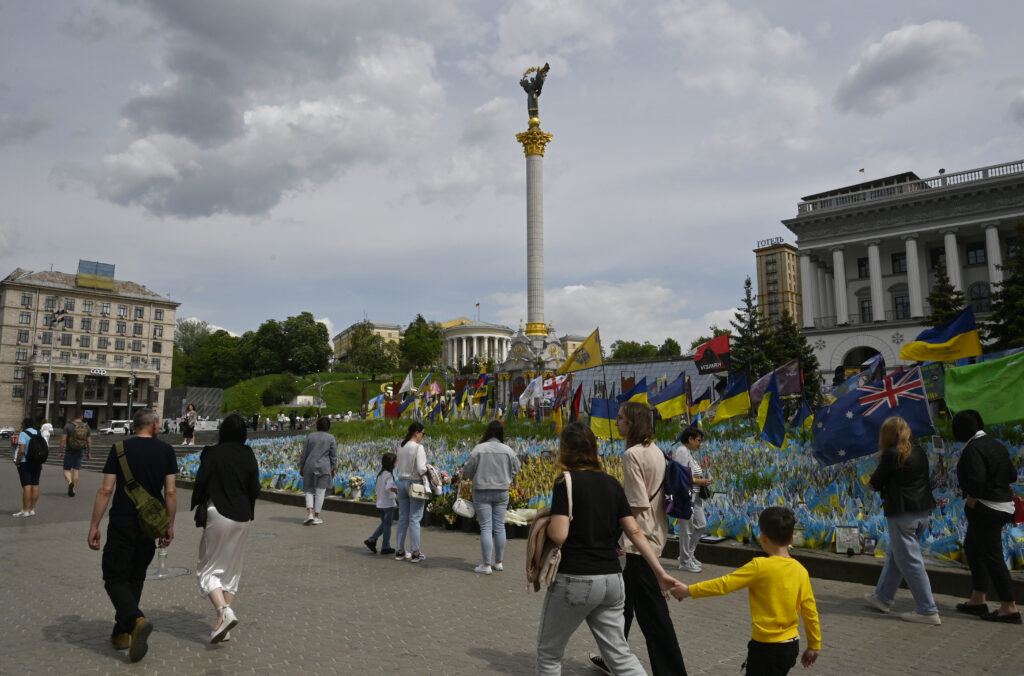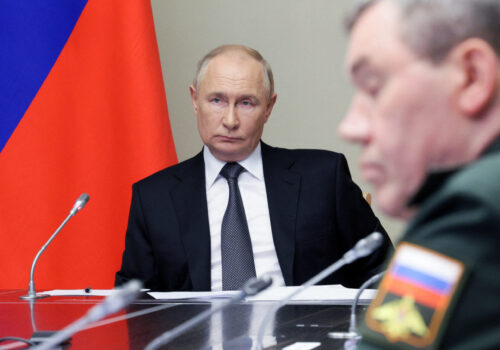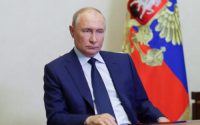
Ukraine’s EU accession hinges on stronger defense and consolidated reforms

Ukraine officially began accession talks with the European Union on June 25. While these negotiations offer hope for a nation that has long sought more comprehensive integration with European political and economic structures, they will also be qualified by contemporary security and political considerations. To achieve EU accession, Ukraine must strengthen its defense capabilities, execute administrative reforms within its judiciary, and implement a multi-sector approach to corruption.
Future administrative, judicial, and institutional reforms necessary for EU integration depend above all on Ukraine’s ability to secure its sovereignty and defend its territory. At the June 2024 Ukraine Recovery Conference in Berlin, “United in defense, united in recovery, stronger together” was a rallying cry and call to action. Ukrainian and European stakeholders outlined Ukraine’s needs for air defense systems necessary to protect the country’s critical civilian infrastructure.
Ukraine must also build upon recent defense reforms to expand transparency and strengthen efficiency throughout its procurement and production system. In June 2023, Ukraine’s state-owned defense conglomerate Ukroboronprom was transformed into a joint-stock venture as Ukrainian Defense Industries (UDI). It introduced institutional reforms to create a new corporate structure reflecting European standards. Direct engagement with EU representatives has helped Ukraine adapt its administrative architecture while creating new production and procurement initiatives with Ukrainian agencies.
These new relationships have grown exponentially over the past year and feature plans to produce equipment and ammunition in Ukraine. In July, German defense firm Rheinmetall announced that it had received a request from the Ukrainian government to open an ammunition factory in Ukraine. In the same month, UDI signed an agreement with US defense company Northrop Grumman to jointly produce NATO-standard, medium-caliber munitions. Additional joint-venture initiatives with European states and individual companies can help Ukraine obtain the resources to halt Russian territorial advances and strengthen its long-term security capabilities.
Stay updated
As the world watches the Russian invasion of Ukraine unfold, UkraineAlert delivers the best Atlantic Council expert insight and analysis on Ukraine twice a week directly to your inbox.
While these reforms will help overcome material deficits, Ukraine must also address corruption, which diminishes the country’s administrative capacities and erodes international appetite to support Ukraine. In 2023, former European Commission President Jean-Claude Juncker justified his reserved attitude toward Ukraine’s EU integration by identifying Kyiv’s corruption challenges, stating, “Despite its efforts, it is not ready for accession; it needs massive internal reform processes.”
President Zelenskyy’s administration has increased efforts to remove corrupt defense officials and accomplices. In 2024, the Ukrainian Security Service opened investigations into five public officials who allegedly created fraudulent ammunition procurement contracts valued at $40 million. In 2023, Ukraine’s then Minister of Defense, Oleksii Reznikov, resigned after investigative journalists uncovered numerous mismanaged procurement contracts resulting in overpriced personnel equipment, food supplies, and clothing.
Ukraine’s battle with corruption transcends the defense sector and needs to be conducted with equal effectiveness throughout its public institutions. Looking ahead, the country’s ability to remove corrupt officials and the structures that conceal their relationships will be critical for its EU accession process.
Ukraine has taken concrete steps before and since Russia’s 2022 full-scale invasion to improve public accountability and transparency. As a result of Ukraine’s 2014 Revolution of Dignity, Kyiv formed multiple agencies charged with enforcing anti-corruption laws and implementing preventative measures.
The National Anti-Corruption Bureau of Ukraine (NABU) is now Ukraine’s primary anti-corruption law enforcement agency investigating high-level cases. Since its inception in 2015, NABU has brought over 1,000 cases to court implicating high-profile public officials including a Ukrainian Supreme Court Justice, a member of parliament, and an oligarch. By empowering this and other anti-corruption agencies, Ukraine has made steady progress in removing corruption as an impediment to joining the EU.
Eurasia Center events
Political action reforming Ukraine’s judiciary is necessary to align Ukraine’s legal structures with European standards and safeguard progress in eradicating corruption. Specifically, legislation is needed to address issues relating to the selection and regulation of judges and public prosecutors.
So far, Ukraine has been responsive to domestic and international calls for greater action. In November 2022, the European Commission for Democracy through Law (Venice Commission) released a report outlining recommendations for Ukraine to change the procedure for selecting judges for the Constitutional Court. By August 2023, Kyiv enacted legislation outlining merit-based procedures to select justice candidates for the court. This legislation also established an Advisory Group of Experts to serve as a pre-selection body of members appointed by Ukraine’s President, the Council of Judges, and international organizations. While this process will help reduce the political control of judicial leaders, similar legislation should be replicated to select public prosecutors.
Multiple semi-public agencies are responsible for appointing and regulating public prosecutors. The National Conference of Prosecutors holds considerable influence in appointing some of the members of other prosecution service governance bodies, including the Council of Prosecutors and the Qualification and Disciplinary Commission of Prosecutors (QDCP). Staff supporting the Council of Prosecutors are unpaid and serve part-time, while members of the QDCP comprise eleven appointed representatives selected by academic leaders and public interest groups.
Even though the Council of Prosecutors and the QDCP are financed by Ukraine’s Office of the Prosecutor General, the existing system of selecting, administering, and regulating prosecutors diminishes Ukraine’s ability to service legal cases and potentially gives power to external interest groups. Instead, Ukraine can empower the Office of the Prosecutor General, granting them financial and administrative authority rather than relying on the discretion of lobbyists and private stakeholders.
During an October 2023 meeting of EU foreign ministers in Kyiv, German Foreign Minister Annalena Baerbock stated, “The future of Ukraine lies in the European Union. In our community of freedom, which will stretch from Lisbon to Luhansk.” Since gaining independence in 1991, Ukraine has committed to securing a democratic future alongside its European neighbors. This goal is now within reach. By strengthening its defense capabilities and taking a multi-sector approach to eradicating corruption, Ukraine can achieve the European future it has long sought and rightfully deserves.
Zachary Popovich is Young Professionals in Foreign Policy’s Rising Expert on Eastern Europe. He holds a master’s degree in public administration from James Madison University.
Further reading
The views expressed in UkraineAlert are solely those of the authors and do not necessarily reflect the views of the Atlantic Council, its staff, or its supporters.

The Eurasia Center’s mission is to enhance transatlantic cooperation in promoting stability, democratic values and prosperity in Eurasia, from Eastern Europe and Turkey in the West to the Caucasus, Russia and Central Asia in the East.
Follow us on social media
and support our work
Image: People pass by the Ukrainian flags with the names of the fallen Ukrainian soldiers who died during the war with Russia, at the Independence Square in Kyiv. (Sergei Chuzavkov / SOPA Images via Reuters Connect)




